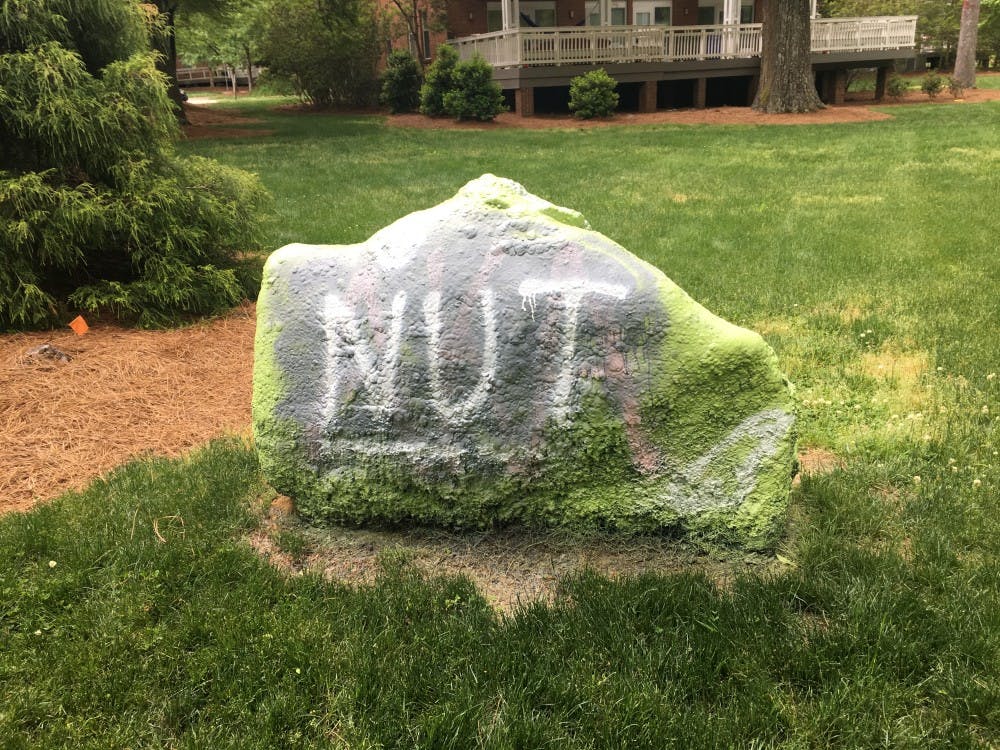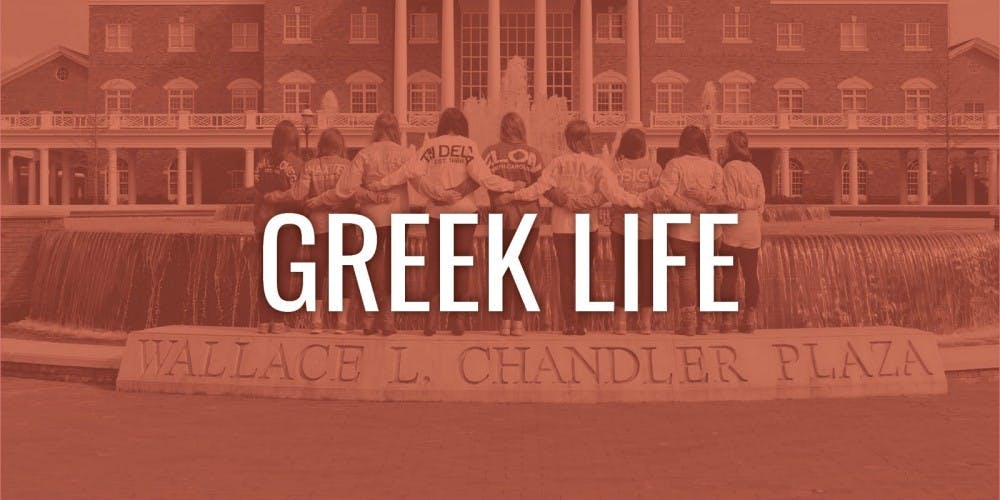On Sunday, May 6, the rock in Loy Center, which was painted salmon pink and apple green in honor of the Omicron Epsilon Chapter of Alpha Kappa Alpha Sorority’s new member presentation, was defaced.
Someone unknown to the sorority spray painted over its layer of paint on the rock and scrawled the word “nut,” which has the slang and derogatory connotation of a sexual act. The rock is located in the back of Loy Center, and is used by all Greek organizations. Specifically, National Pan-Hellenic Council organizations, which are historically black, paint the rock in their organization's colors before their new member presentations.
“It was kind of a slap in the face, I’m not even going to lie,” said junior Samii Foster, the president of Alpha Kappa Alpha. “This hurt the fact that it was our new members’ day ... to come out and show the campus how hard they’ve been working, what they’ve been putting into their presentation, what they know."
“This isn’t a petty rivalry type of thing. There’s more history, there’s more significance to the fact that we were painting the rock. I wish it hadn’t been done, but obviously there’s nothing we can do to go back and change it."

Foster said Alpha Kappa Alpha didn't report the incident to the Office of Fraternity and Sorority Life because the organization didn't want to "dampen the shine" of their new members' big day.
But she said it frustrated her organization. And it isn't the first time a NPHC organization has felt this way. Last year, a student stood on the Phi Beta Sigma Fraternity, Inc., plot behind Lakeside Dining Hall and took a Snapchat selfie of it.
While Foster said she could not pinpoint a specific reason for the vandalism, she said it is a chance to discuss the seven NPHC organizations at Elon — and their traditions — more in depth.
"The best thing that we can do is talk about it and raise more awareness about the situation," Foster said. "If you know the standards we’ve upheld and part of our history and why we exist and why our founders created our organizations, ... you would really understand why certain things are so important for us and why it’s disrespectful for certain things to be done.”


